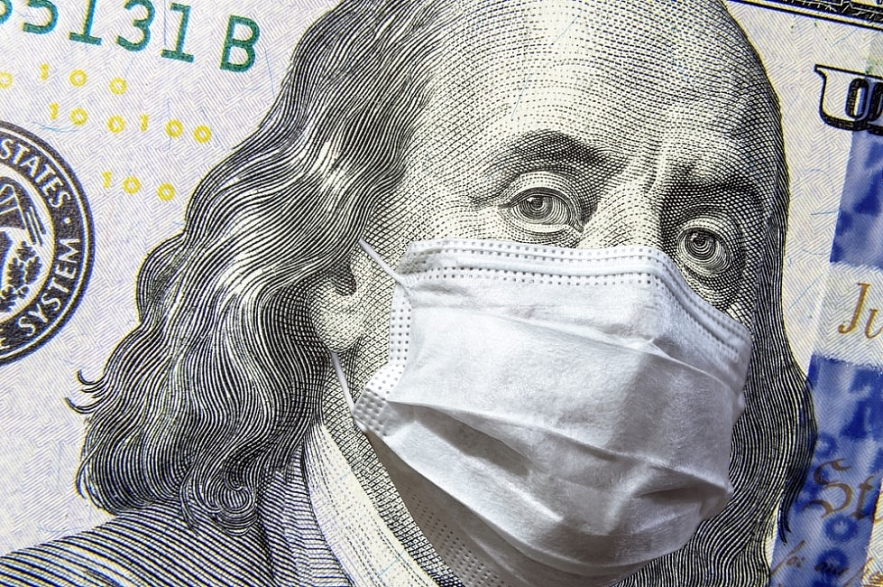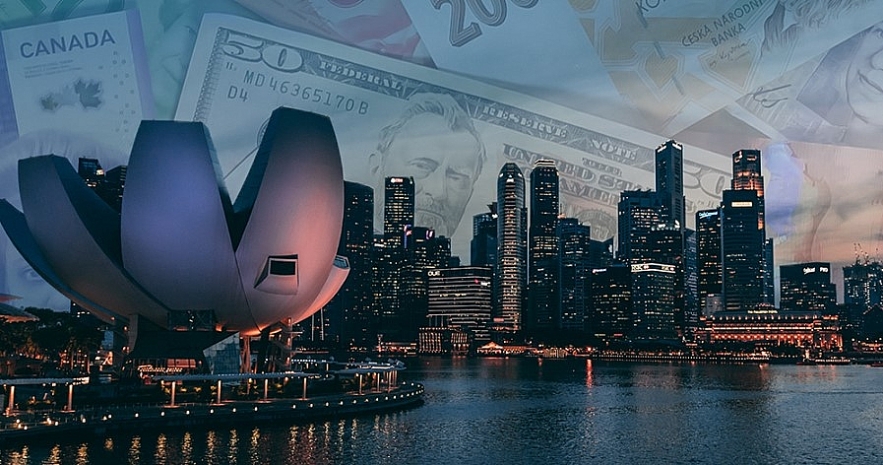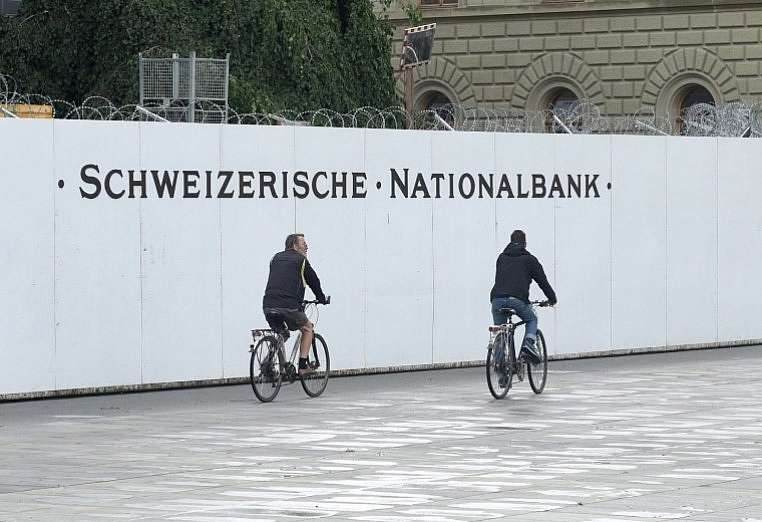Top 5 Best Countries For Hiding Your Money
 |
| Top 5 Best Countries For Hiding Your Money. Photo: knowinsiders. |
What are the best countries for hiding your money?
If you’re putting money in offshore bank accounts in order to save on taxes, there are two main criteria you’re looking for: secrecy and accessibility.
While individuals might create shell companies in tax havens to hide their wealth, corporations are usually directly incorporated in the tax haven in order to defer taxes.
But the tax haven landscape might soon shift. The G7 struck a deal in June 2021 to start taxing multinational corporations based on the revenue generated in each country (instead of where the company is based), as well as setting a global minimum tax of 15%. In total, a group of 130 countries have agreed to the deal, including India, China, the UK, and the Cayman Islands.
As the campaign to bring back deferred taxes ramps up, the question becomes one of response. Will the ultra-wealthy individuals and corporations start to work in tandem with the new rules, or discover new workarounds and tax havens?
And though there is some truth to that logic, as visualcapitalist.com reported, the reality is that the world’s biggest tax havens are spread all over the world. Some of them are small nations as expected, but others are major economic powers that might be surprising.
Here are the world’s top 5 tax havens, as ranked by ACT Coalition’s Financial Secrecy Index, a D.C.-based organization:
1. The U.S
2. Singapore
3. Switzerland
4. Luxembourg
5. Hong Kong (China)
*****
Top 5 best countries for hiding money
1. The U.S
This year marks the first time the U.S. placed No. 1 on the Tax Justice Network's Financial Secrecy Index, the UK-based organization said. "The U.S. often says 'We're No. 1' but this is one thing we don't want to be No.1 in," said Ian Gary, the executive director of the FACT Coalition, which is part of the justice network.
According to CBS News, t he findings come as the U.S. cracks down on Russian oligarch wealth following Russia's invasion of Ukraine. The U.S. has imposed financial sanctions on some oligarchs, including billionaires Alisher Usmanov and Igor Shuvalov, but that task has been made more difficult by the fact that much of that wealth is hidden within an intricate web of real estate assets, private investment accounts and anonymous shell companies, Quartz reported.
The Department of Justice has created a new KleptoCapture task force aimed specifically at finding the hidden Russian wealth.
The Tax Justice Network examined financial rules from about 100 countries, including laws that make it easier for criminals to hide and launder money. The main reason the U.S. jumped to the top of the list, according to experts: a lack of funding for the Treasury Department to enforce a new anti-money laundering law.
 |
| Photo: mybanktracker.com. |
In December 2020, Congress passed the Corporate Transparency Act, which requires anyone who forms a shell company in the U.S. to list an owner's name. Under the act, the Treasury Department's Financial Crimes Enforcement Network, or FinCEN, is in charge of enforcing the rules.
But experts said FinCEN needs additional funding, staff and technology to take on this new task and investigate who's illegally stashing money. Biden administration officials are asking Congress to send $210 million to FinCEN under the U.S. government's proposed 2023 budget, which marks a roughly 30% increase from its current funding.
| Luanda Leaks Isabel dos Santos, the daughter of Angola‘s former president, is worth an estimated $2bn, according to Forbes magazine. The International Consortium of Investigative Journalists (ICIJ) claims dos Santos used an “army” of Western advisors to “hide assets from tax authorities”. “Isabel dos Santos, too, took advantage of a US secrecy jurisdiction. The Luanda Leaks documents show that dos Santos used a Delaware company to buy property in Portugal. Delaware is one of the easiest places to create a low-taxed, secretive company,” said Fergus Shiel, Luanda Leaks project manager at the ICIJ. Africa’s first female billionaire is accused of using international tax havens to move and store her assets. In a televised interview, dos Santos told Al Jazeera the allegations levied against her are untrue. |
Increasing levels of financial secrecy in the US are largely due to the passing of a new law permitting the establishment of non-charitable private foundations without the need for disclosure, the report said. The US has also yet to sign onto the Common Reporting Standard, which is maintained by the Organisation for Economic Co-operation and Development (OECD) and which currently has 105 signatories.
2. Singapore
Singapore is becoming the playground of the super wealthy, as asia.nikkei.com reported. With its low-tax regime and its free-market credentials, foreign funds and assets have been flowing into the country even during the pandemic. On their tail, their wealthy owners have also rocked up to the Monaco of the east, some fleeing the political instability in Hong Kong.
The most obvious reason why the ultra-rich are fond of Singapore is that it is a rather safe place for a wealthy person to park their money. An indication of this is the fact that our country receives top marks for its sovereign credit rating.
In fact, Singapore is one of the few countries in the world to currently hold the highest possible score of an AAA rating from the three most influential agencies handing out these ratings — Moody's, Fitch, and Standard and Poor's.
Those looking to establish a family office might be interested in specific factors such as political and economic stability, as well as the strength and transparency of its legal system, which all count toward a stronger credit rating.
For example, if a country's government or judiciary is known to have high levels of corruption, a wealthy individual may choose not to operate there over concerns about how they may treated, should they be unable to get into the good books of those in power.
 |
| Photo: mothership.sg. |
Or maybe a country's politics may be so unstable that there is a risk of the government collapsing into chaos, or even just changing its corporate tax policy, for example, after every election. This too would understandably be a turn off for someone looking for a location to headquarter their financial activities. Yet, safety and stability can't be the only things making Singapore attractive to the rich, as mothership.sg reported.
After all, countries like Sweden, Denmark, and Switzerland have also received AAA ratings across the board; Canada, the United States, the United Kingdom, and Australia also rate highly. So while safety and stability are basic requirements, something else is needed to really draw the money of the world's wealthiest to Singapore.
| Tax incentives According to Deloitte, Singapore is known for having one of the most competitive tax regimes in the world. Corporate tax here is levied at a flat rate of 17 per cent, while income tax comes in at 22 per cent for those in the highest bracket. Compare that to tax rates in fellow AAA-rated country Sweden where corporate tax is about 20 per cent and income tax can be as high as 57 per cent, according to Investopedia. Meanwhile in Singapore, Deloitte cites the absence of capital gains taxes and tax on foreign-sourced income in the hands of individuals — a rarity in the developed world — as being particularly attractive to ultra high net worth individuals. Apart from the friendly taxation, a few other government policies have made it easier for rich persons to bring their wealth to Singapore. This includes the Variable Capital Company (VCC) framework introduced in January 2020 and administered by the Accounting and Corporate Regulatory Authority (ACRA). |
3. Switzerland
Since at least the beginning of the 18th century, Geneva had become a favoured destination of French royalty and other European elites seeking discreet havens to stash their wealth, and in 1713, Swiss government authorities announced laws prohibiting bankers from giving out information about their customers. Thus began a powerful culture of silence and secrecy that went on to become the defining feature of Swiss banking.
In 1934, as Indian Express, Switzerland passed the Federal Act on Banks and Savings Banks, commonly known as the Banking Law of 1934 or the Swiss Banking Act. The best known part of the law, Article 47, made it a crime to reveal details or information of customers to almost anyone — including the government — without their consent and in the absence of a criminal complaint. Violators can get five years in prison; Article 47 lies at the heart of some of the most stringent banking secrecy laws anywhere.
As wealth became easily mobile across international borders, the safety and stability of Swiss banks, located in a peaceful, politically neutral country committed to discretion, presented an irresistable attraction for the super rich and others who did not want to answer questions about sources of their wealth. Depictions in films created popular images of long tunnels leading to underground vaults, and bank officials with an unwavering reputation for client confidentiality. James Bond’s dialogue in The World is Not Enough (1999) is quoted often: “If you can’t trust a Swiss banker, what’s the world come to?”
 |
| Photo: expatica.com. |
| Safe and easy banking Swiss bank accounts are attractive to depositors because they combine low levels of risk with very high levels of privacy. The Swiss economy is extremely stable, and the banks are run at very high levels of professionalism. Almost any adult in the world can open an account in a Swiss bank. Opening an account is not difficult, and requires not much more than basic KYC, including a proof of identity such as a passport. A minimum balance is required, which varies with the type of account, and from bank to bank. The patronage of international clients is critical to Swiss banks and to the Swiss economy as a whole. The Guardian reported that almost half of the 7.9 trillion Swiss francs ($8.59 trillion) of assets under management in Switzerland belong to foreign clients. The banking industry contributes a tenth of Switzerland’s GDP and a similar share of the country’s jobs. There are more than 240 banks in the country, but Credit Suisse and UBS control about 50% of all banking assets, The Guardian said. |
Switzerland has long been considered a tax haven on the international stage, with cantons competing to offer the most attractive income tax and corporate tax rates. The country’s tax system has led to nearly half of the money in Swiss bank accounts originating from abroad.
There are some signs, however, that Switzerland may be losing its tax haven status. After criticism from the European Union, the Swiss government scrapped the preferential treatment given to multinational companies, introduced greater controls on residency, and brought in stricter rules on foreigners opening bank accounts, as expatica.com reported.
4. Luxembourg
Luxembourg’s history as a financial hub began in July 1929, when the government passed a law, aimed at attracting international investors, that allowed anyone to establish a financial holding company exempt from taxes on income, dividends and capital gains— all with its ownership undisclosed. Barely three months later, the Wall Street crash of October 1929 plunged the global economy into the Great Depression and dashed Luxembourg’s hopes of becoming a financial center, as Forbes reported.
In 1963, Luxembourg tried again. It pioneered the listing of eurobonds—bonds issued by a company outside of its home market—in a move that attracted major corporations and wealthy families, made holding companies more popular and set off a boom in its financial services industry. The country’s permissive laws governing financial holding companies—known as Soparfi (short for société de participations financières)—also remained largely unchanged until 2006, when the European Commission required Luxembourg, a founding member of the EU since 1951, to repeal the original 1929 law.
Since 2011, after a four-year grace period, Soparfi have been subject to local corporate and business taxes, but they remain a common type of unregulated investment company favored by foreign investors—and retain certain crucial tax advantages. Luxembourg also has tax treaties with several countries—including the United States, China, Russia and all EU members—that make it an attractive place for investors seeking to reduce their tax burden by incorporating their holding companies there.
“Luxembourg attracts investors of diverse profiles and preferences by offering a wide range of investment vehicles—from plain vanilla, non-regulated corporations, to lightly regulated [investment companies], to highly supervised investment funds,” says Xavier Martinez, a tax partner at KPMG. “While fully compliant with the EU’s latest anti-tax avoidance and administrative cooperation regulations, [Luxembourg] is constantly innovating to provide a competitive and business-friendly environment.”
Forbes found two common ways billionaires have been using Luxembourg holding companies to invest in assets elsewhere. Some, such as Arnault and Spanish fashion tycoon Amancio Ortega, hold public stocks, private companies or real estate through Luxembourg holding companies, potentially taking advantage of Luxembourg’s dividend tax exemption. Others, such as Russian metals baron Mikhail Prokhorov and Italian billionaire John Elkann, hold smaller assets such as hotels or private firms through Luxembourg companies, sometimes liquidating them (tax-free) after cashing out on their investment.
For billionaires with large holding companies incorporated in Luxembourg, the key benefits are the ability to reinvest dividends and capital gains tax-free in other assets. According to a tax attorney in Luxembourg, dividends earned by Luxembourg holding companies are indeed commonly reinvested tax-free, allowing investors to take advantage of the 100% dividend tax exemption.
 |
| Since the late 1920s, the Grand Duchy of Luxembourg has worked to become a financial center. Forbes found that dozens of billionaires have holding companies there holding nearly $30 billion in assets. GETTY IMAGES |
5. Hong Kong (China)
Hong Kong is a city full of millionaires and billionaires. Tax havens are countries with low tax rates, particularly for foreign investors, that make them attractive places for people to park their money. Hong Kong is considered a leading tax haven due to its laws that limit taxation on the island’s wealthy foreign residents and corporations, as investopedia.com reported.
In fact, in 2020, accounting firm PwC and the World Bank ranked Hong Kong as the country with the most friendly tax system, second only to Bahrain. The People’s Republic of China, of which Hong Kong is a part, permits Hong Kong’s autonomy and arguably allows for even greater secrecy than the island had under its former British rulers.
Hong Kong, a Special Administrative Region (SAR) of China, is one of the leading financial capitals in the world. As such, many of the world’s leading banks have operations there. The island also has one of the largest stock exchanges in the world.
It even has its own currency, the Hong Kong dollar, so foreigners need not worry about transacting in the lesser-valued Chinese yuan.
Wealthy foreigners have every reason to bank their money in Hong Kong. For one, the island does not tax income earned beyond its borders. Those who earn salaries in the region pay an income tax between 2% to 17%, depending on their salary, which is significantly lower than taxes levied on salaries in the West. Additionally, corporations pay a tax of 8.25% or 16.5%, depending on the profit levels generated in Hong Kong.
Even more beneficial is that the autonomous region does not charge tax on capital gains, interest, or dividends. Foreigners who keep their money in Hong Kong pay no net-worth taxes and no public benefits taxes, which are similar to Social Security taxes in the United States. High-net-worth individuals who do not keep their financial assets in Hong Kong can still benefit from going on Hong Kong shopping sprees, as shoppers pay no sales tax on their purchases.
 |
| A view of Victoria Harbour from Victoria Peak in Hong Kong. Shutterstock/Subodh Agnihotri |
| Commitment to Secrecy Renowned tax haven, Switzerland, bowed to pressure from the United States and the European Union to share information about foreign bank accounts and asset owners seeking shelter from taxation. However, Hong Kong refused to do so and was named to the EU’s blacklist of non-cooperating tax havens around the world. Hong Kong is still behind Switzerland in secrecy rankings but has become a strong competitor. In 2020, Hong Kong ranked fourth on the Financial Secrecy Index, behind Switzerland, the United States, and the Cayman Islands. Hong Kong was given a score of 66, considered a high score and a reflection of the region’s commitment to the privacy of those who keep their money there. |
Hong Kong's favorable tax structure makes it an attractive place for foreigners to deposit their money as well as a place for corporations to do business. The tax structure and Hong Kong's ongoing dedication to preserving secrecy for investors have contributed to it becoming a popular tax haven that has helped establish it as one of the world's premier financial hubs.
However, the G7 and the US are currently working on new laws to alleviate tax evasion for individuals and corporations. These laws include the wealth tax and the global minimum corporate tax, respectively. If they are instituted, they might be enforced in tax havens as well, such as Hong Kong.
Today, we live in an environment of transparency. And that’s fine. It is what it is. There are still ways to enjoy greater freedom, prosperity, and growth by going offshore. You don’t need to hide money to have any of that.
 Top 5 Best Free Psychic Sites For Reading Online Top 5 Best Free Psychic Sites For Reading Online Some people often come to psychic reading when they are in need of guidance or want to know about different aspects of life. Here are ... |
 Top 5 Zodiac Signs Who Are The Best Learners Top 5 Zodiac Signs Who Are The Best Learners Believe it or not, astrology might come in handy to tell you which astrological signs are the best learners. Keep on reading to see our ... |
 Top 5 Zodiac Signs Who Are The Best Teachers Top 5 Zodiac Signs Who Are The Best Teachers Believe it or not, astrology might come in handy to tell you which astrological signs are natural teachers. Keep on reading to see our top ... |
























